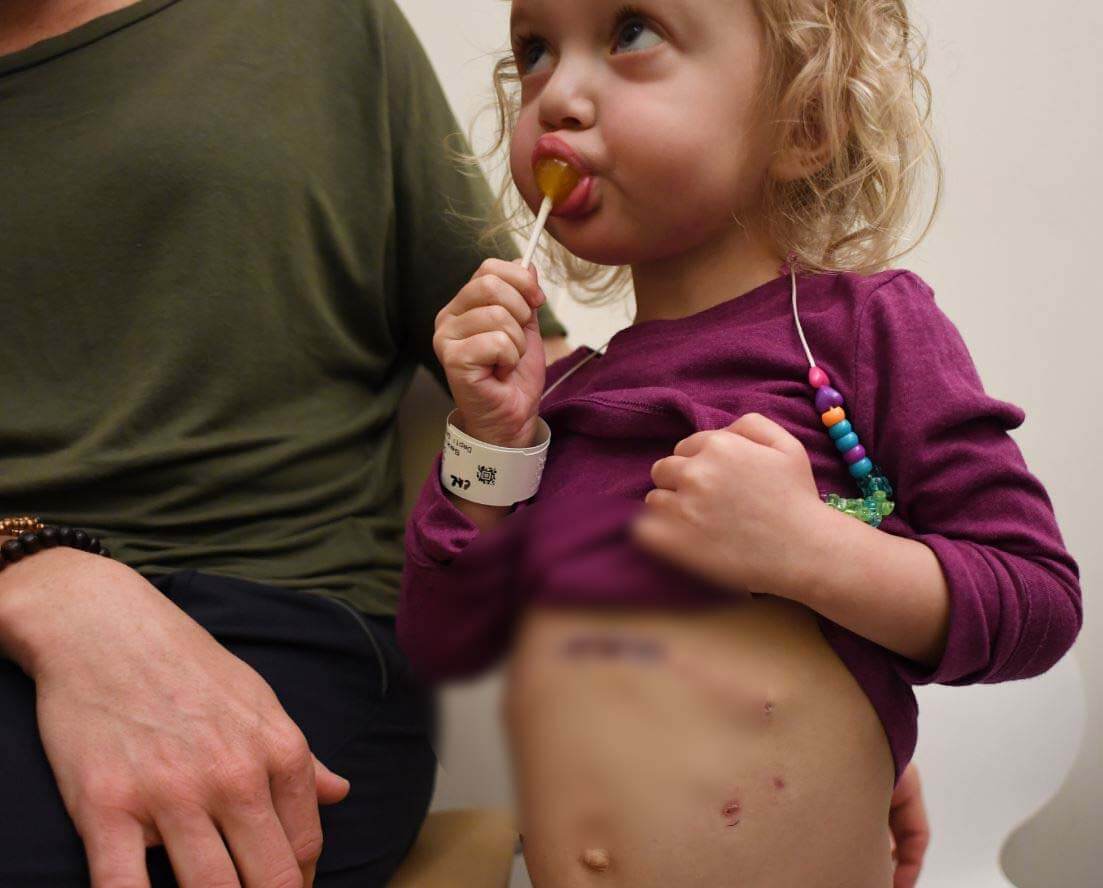Liver Transplant for Children
Liver transplantation has shown remarkable success in children suffering from end-stage liver diseases. It provides young patients with a chance for a healthier and longer life. In this article, learn all the essential details about liver transplants for children.

Contents
- Cost of Liver Transplants for Children
- Comparison of Costs in Different Countries
- What is a Liver Transplant for Children?
- Reasons for Liver Transplants in Children
- Risks of Liver Transplants
- Pre-Transplant Procedure
- During the Surgery
- Post-Surgery Care
- Timeline for Liver Transplants in Turkey
Cost of Liver Transplants for Children
The cost of a liver transplant for children varies between countries. In Turkey, the cost starts at approximately $52,000, making it one of the most affordable options.
The price also depends on the hospital’s services and the expertise of the surgeon performing the operation.
Cost Comparison for Liver Transplants
| Country | Cost (€) |
|---|---|
| USA | 260,000 |
| Germany | 170,000 |
| France | 180,000 |
| Spain | 130,000 |
| Turkey | 45,000 |
If you are considering traveling for a liver transplant, contact us to guide you to the best hospitals with the highest success rates and the most affordable costs. 📞
What is a Liver Transplant for Children?
A liver transplant is performed when a child’s liver fails to function properly, posing a life-threatening risk. It is recommended only when all other treatments fail.
The new liver can come from:
- A deceased donor.
- A living donor with matching blood type, such as a family member or an unrelated healthy individual.
Living donors can live healthy lives with their remaining liver, as the liver is the only organ that regenerates. Both the donor’s and recipient’s liver regrow to normal size within weeks.
Reasons for Liver Transplants in Children
The most common reason for liver transplants in children is biliary atresia, a rare liver and bile duct condition in newborns. Other reasons include:
- Liver cancer and other tumors.
- Acute liver failure due to autoimmune diseases, unknown causes, or drug overdose (e.g., acetaminophen).
- Genetic liver diseases.
- Congenital conditions like Alagille syndrome.
- Viral hepatitis.
- Hemochromatosis (excess iron damaging organs).
- Alpha-1 antitrypsin deficiency, a hereditary condition leading to liver disease.
Risks of Liver Transplants for Children
Possible risks include:
- Rejection of the new liver by the immune system.
- Bleeding.
- Infections.
- Blockage of blood vessels in the new liver.
- Bile leakage or obstruction.
- Temporary liver dysfunction post-surgery.
To prevent rejection, children must take immunosuppressive medications for an extended period.
Pre-Transplant Procedure
If a child requires a liver transplant, they are referred to a transplant center.
At the center, the healthcare team ensures the child is fit for surgery and post-surgical care through:
- Blood tests: To determine blood type.
- Imaging tests: Such as abdominal ultrasound or CT scans.
- Biopsy: A small sample of liver tissue for microscopic analysis.
The next step involves finding a donor:
- Deceased donor: By listing the child on an organ transplant waiting list.
- Living donor: From family or a matching individual.
During the Surgery
On surgery day, the child undergoes preparation and final testing to ensure the new liver is suitable.
In the operating room:
- A surgical incision is made in the abdomen.
- The diseased liver is removed.
- The new liver is connected to blood vessels and bile ducts.
- The incision is closed.
If the donor is living, the transplanted liver segment regenerates in both the donor and child within weeks.
Duration: 7–10 hours.
Post-Surgery Care
After surgery, the child is moved to the Pediatric Intensive Care Unit (PICU).
- Hospital Stay: 2–4 weeks.
- Post-Discharge Care: Families are trained on how to care for the new liver.
Children require regular follow-ups to ensure proper recovery.
Liver Transplant Timeline in Turkey
| Stage | Duration |
|---|---|
| Surgery Duration | 7–10 hours |
| Hospital Stay | 2–4 weeks |
| Stay in Turkey | At least 2 months |
| Full Recovery | 6 months post-surgery |
Watch the Procedure
Check out this video explaining liver transplants in Turkey and showcasing the expertise of Turkish hospitals. 🎥
Sources
- KidsHealth
- Pediatric Liver Transplant
- Children’s Hospital of Philadelphia

